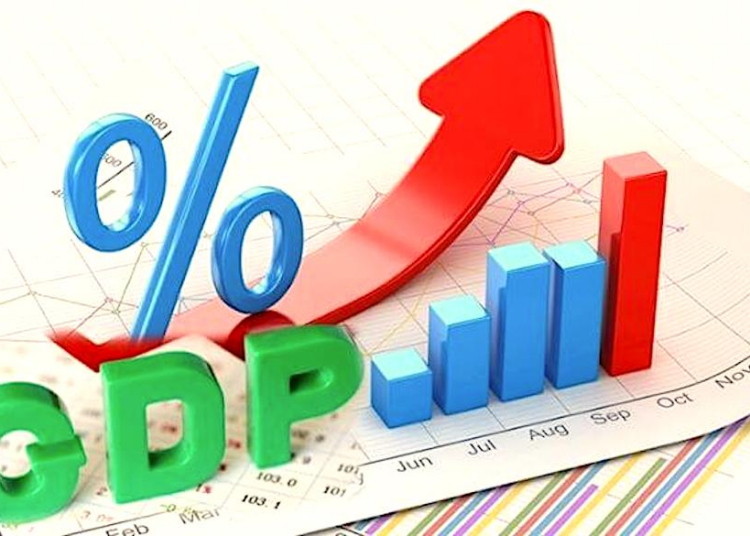With the benefit of insight, not long from now, the National Bureau of Statistics (NBS) will release Nigeria’s rebased GDP figures, updating the nation’s economic data for the first time in over a decade. This is no small matter, considering the length of the gap. GDP rebasing is a major statistical overhaul that reflects the current realities of how Nigerians produce, earn, and spend money.
Based on global patterns and Nigeria’s evolving economic structure, the outcome is expected to show a significantly larger economy. New and previously underreported activities like Opay and PalmPay mobile payments, Netflix subscriptions, home food deliveries via Jumia or Glovo, the explosion in short-let real estate in cities, digital services by freelancers, skit makers and influencers, and the informal market hustle across open-air markets will now be fully captured.
Nigeria may once again record very high GDP figures, just as it did during the 2014 rebasing exercise, when the economy overtook South Africa. But while this may sound like a national triumph, it comes with caveats that must not be ignored.
Rebasing offers several undeniable advantages. First, it provides a more accurate and modern picture of the economy. With this new data, policymakers, investors, and researchers can make better-informed decisions. The exercise also aligns Nigeria with international statistical standards, strengthening the country’s economic credibility in the eyes of institutions like the IMF, World Bank, and global rating agencies.
A bigger GDP can boost investor confidence. Nigeria will likely be more attractive to both domestic and foreign investors, especially those in consumer services, digital technology, agriculture, and financial services. State governments can better benchmark their performance and plan their economic strategies based on real data, not outdated assumptions. And yes, a larger GDP might make Nigeria’s debt-to-GDP ratio appear lower, potentially improving our credit profile in global capital markets.
Understandably, the flipside of GDP rebasing like the revenue gap, debt illusion, or development benchmarks makes for important critique. But it would be incomplete and even misleading to focus only on the risks. As thought leaders and commentators, we owe it to the public to educate, not just criticise. Citizens must understand both the limitations and the strategic value of a rebased GDP. Without this balance, we risk turning a necessary statistical progress into a needless controversy.
Still, for a government elected on the promise of accelerated growth premised on new reforms, a rebased GDP raises the bar. It highlights untapped opportunities but equally exposes old weaknesses. For one, a bigger economy makes Nigeria’s revenue-to-GDP ratio look even worse. This important indicator already lingers below 10 percent among the lowest in the world. In effect, it shows that the government is not collecting enough revenue from the economy.
Interestingly, the recent effort by the Federal Government to introduce comprehensive tax reforms may help close this gap. For instance, informal traders at Alaba market or building material dealers in Suleja who previously operated outside the tax net may now fall under structured tax regimes. By widening the tax base, improving compliance, and leveraging digital tools like e-filing and cashless tracking, the reforms aim to ensure that government revenue begins to reflect the true size and structure of the Nigerian economy.
Similarly, while a lower debt-to-GDP ratio may seem like good news, it can create an illusion of fiscal space. Nigeria already spends over 60 percent of its revenue on debt servicing. A larger GDP figure doesn’t change this fact. The risk is that the government may borrow more, encouraged by the new rating of a giant economy status.
Also, there is the issue of development benchmarks, like spending on health, education, infrastructure, and social protection, which are often measured as a percentage of GDP. After rebasing, these ratios may appear to shrink unless the government increases actual spending. A mother taking her child to a primary health centre in Kogi or a teacher in Bauchi waiting months for instructional materials may still experience the same challenges, despite a larger GDP for the country.
Perhaps most importantly, GDP rebasing creates a communication problem. Citizens will hear that the economy is now bigger, but jobs may still be scarce, inflation may not automatically drop, and living standards may not suddenly improve. A young graduate still without a job, or a roadside food vendor struggling with rising garri prices, may ask “How does this bigger economy help me?”.
True the understanding of the benefits is more complex and is at the macroeconomic level than that.
The rebasing should not be politicized. It should be a vital step forward in modernizing Nigeria’s economic management.
Ultimately, the challenge is not whether the GDP figure is big or small. To the ordinary person the legitimate question to ask would be : How is the bigger economy serving the people? Does it translate into jobs, affordable food, working schools, functioning hospitals, and a better life?
The true understanding of the benefits may be more complex .
GDP rebasing can only sharpens our view. But it is up to the stakeholders especially government to ensure that the clearer picture leads to clearer progress.
~ Ajibola, an economist and former Managing Director of Daily Trust, is based in Abuja.





